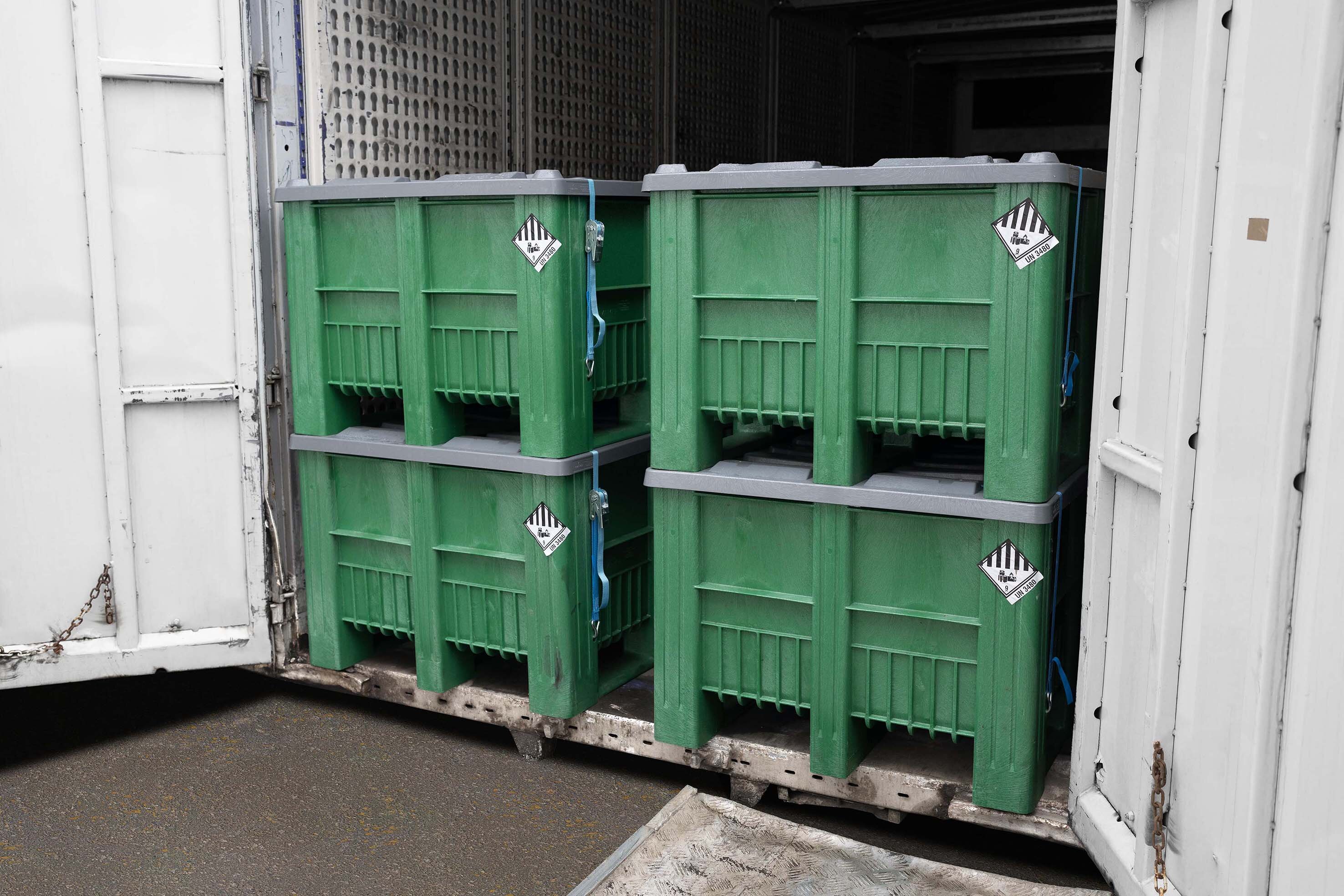Circular economy and environmental protection in the fields of dangerous goods logistics, battery logistics and recycling only work with reliable containers – such as the UN-approved Craemer bulk bins made of high-quality PE. Founded in 1912, the group has been processing plastics since 1958. With four production sites in Europe, it is one of the world's leading manufacturers of logistics solutions. The newly formed German joint venture's mission is to support the entire lifecycle of a vehicle battery under the motto “repair, reuse and recycle”.
Holistic battery recycling with the CB3
The aim is to offer holistic battery recycling along the entire value chain. The new company will handle all processing steps for lithium-ion batteries, primarily from the automotive industry, from initial testing and deep discharge to repair and disassembly.
Craemer's CB and SB3 plastic bulk bins (outer packaging types 4H2, 11H2, 50H) are certified as being suitable for the transport, storage and disposal of non-critically defective lithium batteries and accumulators. The robust containers are available in industrial and Euro dimensions as well as with particularly large volumes – all with solid walls, three longitudinal runners, precisely fitting lids, tensioning straps, dedicated fields, and RFID tag options. The seamless design and smooth inner walls allow easy emptying, cleaning and drying.
The German joint venture uses Craemer CB3 bulk bins for dangerous goods at all stages of the integrated battery recycling process. This UN-certified CB3 model has industrial dimensions (1237 x 1036 x 766 mm with lid), a volume of 610 liters and a maximum gross weight of 438.8 kg. Approximately 1,300 Craemer CB3 bulk bins for dangerous goods have now been in use for about a year.
From collecting to further processing
The bulk containers are used for collection, transport and further processing in the recycling chain. The lithium batteries are first collected from automotive customers, then transported and delivered to the company's own recycling centers. Finally, the modules are dismantled. Lorries, lifting platforms and forklift trucks are used for the various external and internal transport stages. The CB3 bulk bins have proven to be dimensionally stable and maintenance-free throughout the process, even with frequent use.
It is also important for the company’s practical operations that the plastic containers are resistant to most chemicals and cleaning agents. Furthermore, the battery recycler can rely on the Craemer Group for the prescribed filling materials for the transport of non-critically defective lithium (ion) batteries in UN 4H2 and 50H approved containers. On request, Craemer can supply these from a German manufacturer.
Craemer UN-certified plastic bulk bins of the CB and SB3 series comply with all the provisions of the test requirements for dangerous goods in packaging groups II and III. This includes the European Agreement concerning the International Carriage of Dangerous Goods by Road (ADR), requirements concerning the International Carriage of Dangerous Goods by Rail (RID), by sea (IMDG Code), by air (IATA-DGR) as well as the UN Recommendations for Dangerous Goods.
Positive user feedback after one year
After one year of use, the German joint venture for integrated battery recycling is very satisfied with the UN-certified bulk bins. “The CB3s bulk containers have proven to be extremely robust and very reliable in handling our hazardous materials,” says a company representative. “We have known the Craemer Group for many years and are confident that we have chosen the right manufacturer and the best material.”



30725 US HWY 19 N #304
Palm Harbor, FL 34684